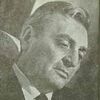
If the artist does not throw himself into his work like Curtius into the precipice, like the soldier at the assault of the redoubt, without thinking, and if in this crater he does not work like the miner under a collapsing bank, if he considers the difficulties instead of overcoming them, one by one... he is present at the suicide of his talent.
If the various works of a nation constitute a mirror in which that nation is reflected as a whole, then it may be said that it is the task of the great poets to summarize the thought of the peoples among whom they live, to be, in a word, their age embodied in a man.
To spread moral principles in the age in which he lives is the goal that every writer must set himself, because otherwise he ends up being nothing more than a maker of amusements... Above all, the goal of a book is to make you think .
The mission of art is not to copy nature, but to reproduce it.
The artist is a missionary; art is a religion that has its priests, but it must also have its martyrs.
You can express beautiful feelings without having felt them, but you can also feel without being able to express them.
The writer... his soul sucks in the world and mirrors it.
Any ink can become Vesuvius.

Do not judge the writers, if only because they are the only beings awaiting judgment.
The deepest of truths: life copies art!
The great literature of all times was a committed, militant, partisan literature, an art of pathos...
The art of all times has been a testimony of passion. An "objective" literature, free from the thrill of participation in the convulsions of the will, is a circle without circumference and with the center everywhere. The poet located "above reality" is a delusion, and the fruit of labor a sad futility...
The revolutionary writer justifies his title to the extent that he seeks and discovers the laws of an ongoing morality, to the extent that he senses, before others, what is still in gestation, and announces to the city, a moment earlier, what tomorrow will become an obvious reality for everyone.
The "truths" are multiple, diverse and contradictory. The truth in art, however, can only be the truth of the great creative multitudes, those who build the supreme truth of humanity: History.
True art requires courage, creative daring, originality, the effort - paid, not infrequently, with heavy penalties - to open new paths for the spirit.

Where historians stop, because they no longer know anything, poets appear and guess.
In the order of creation, we consider the literary phenomenon an act of knowledge and knowledge.
We reject the classical equation: art - nature and postulate the affirmation of the work of art as a sensitized cerebral superstructure.
For me, poetry is an extension of geometry.
I wanted in my versifications to give the equivalent of absolute states of intellect and vision; the state of geometry and, above it, ecstasy…
As in geometry, I understand by poetry a certain symbolism for the representation of possible forms, of existence... there is... somewhere, in the high domain of geometry, a bright place where it meets poetry.

Literature gives us the measure by which one can judge the state of a nation's culture.

Never speak to me again of gloomy Dante! One such artist sang his life with the description of his anxieties. I hope I do not seem to blaspheme the wretched genius if I say that Milton deprived of light, Beethoven excluded from the kingdom of sounds, Pascal paralyzed by disease, Dante banished from the city, were, of all their brethren of misfortune, the best consoled: for it is a imaginary world that the blind saw, that the deaf heard, in which the slave moved and that the exile lived as a divine Florence. I know their groans (they beautify the world) but it is nevertheless a consolation to be made of their own troubles, the remedy of human pain, and one of the solutions to the problem of evil in the universe.

Opera transcends history, in the sense that no historical era exhausts its meanings, it is eternal not because it imposes a single meaning on different people, but because it suggests different meanings to a single man, who always speaks the same symbolic language of along multiple times: the work proposes, the man disposes.
See my words, they are language; see my meanings, they are literature.

To achieve, life needs artistic perspective.

The epic poet must tempt both destinies. To love and suffer with all his heart, like Tasso; to fight for the homeland and traverse the countries, like Camões, to interrogate all the wild and civilized peoples, all the monuments of art, the whole nature that always speaks with eloquence and clarity to an uplifting spirit, enriched with experiences and memories... In a word, he must, disregarding the trifling benefits of life and vanity, sacrifice everything for glory.
The influence, strong and permanent, of the way of life on the talent of the creator, is a fact beyond any doubt.

It is not possible to dissociate poetry from human feeling. What else is art if not the revelation of man and his situation in the universe of things, of feelings, of society?
The peremptory character of testimony gives art its own truth.